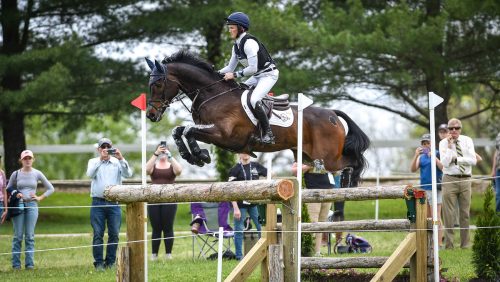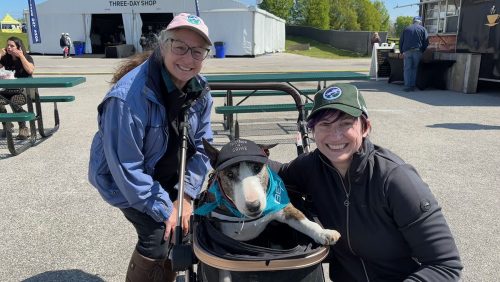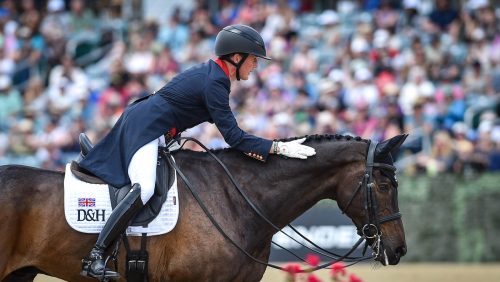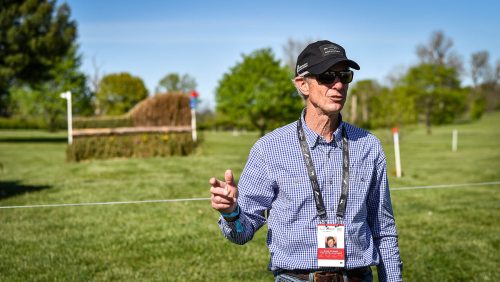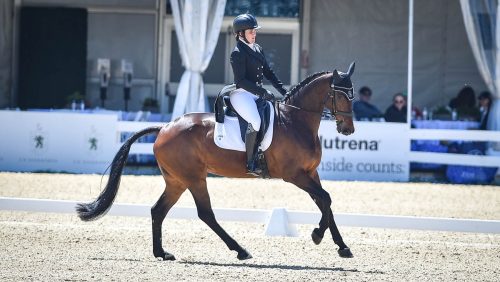Spend any time reading about or discussing the levels of eventing—and how to ensure the safe upward progress of riders and horses through them—and you’ll be reminded that when the U.S. Eventing Association came into existence in 1959 (then as the U.S. Combined Training Association), preliminary was the entry level into the sport.
Three-quarters of a century later, things have changed considerably, at both the national and Fédération Equestre Internationale levels. The most recent additions to USEA-recognized levels were beginner novice (in the early 2000s) and modified (in 2016), while the FEI reorganized its classification system in 2019 to make five-star the highest level and added a new one-star CCI level, comparable to modified level in the U.S. at the lower end of its recognized scale. With every modification there has been some outcry, usually refuted by arguments that the grassroots of the sport need to grow.
So if you’re getting a sense of deja vu with the recent announcement that USEA will officially recognize “starter” level starting in the 2024 competition year, you’re not alone.
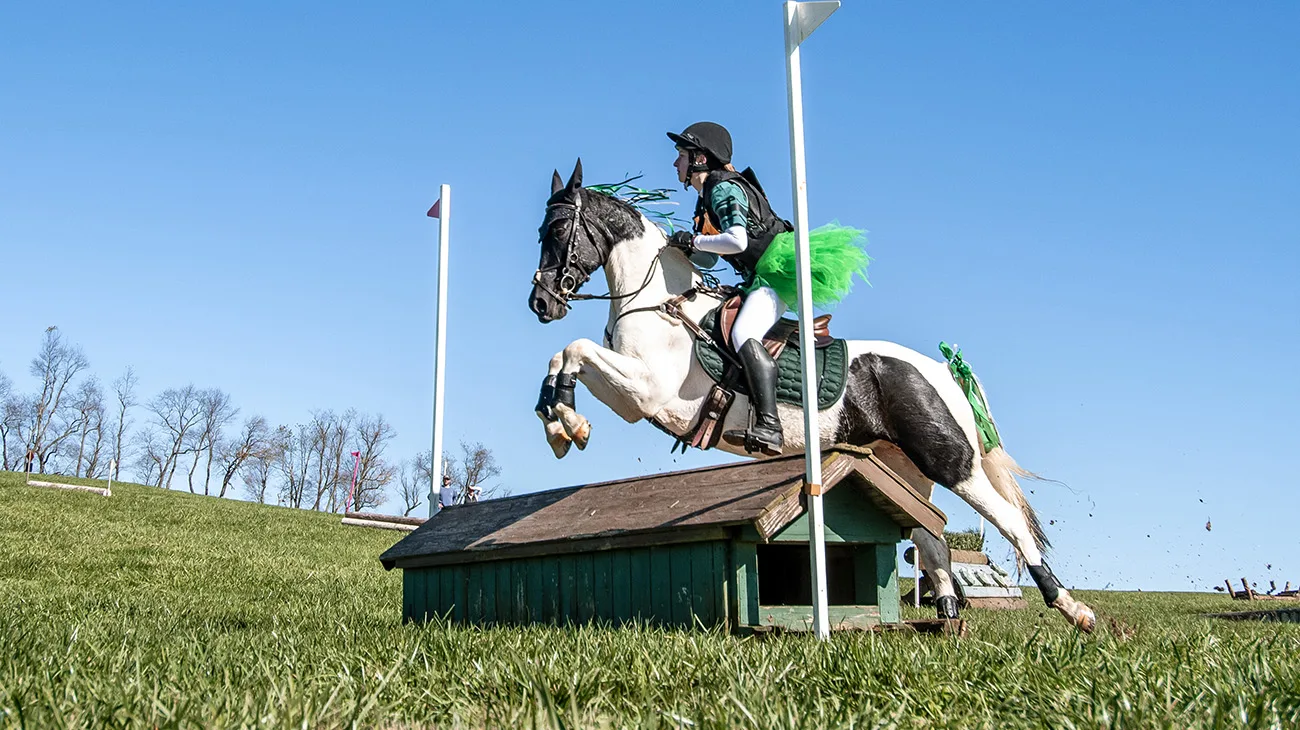
Previously the division had been offered as a USEA-recognized test, and could be run along with the regular divisions at USEA-recognized competitions, but at the USEA Board of Governors meeting in August, a motion was put forward and approved to officially recognize the level.
Competitors at starter level will be included on USEA leaderboards once the new competition year begins Dec. 1, and plans are to include the level at the USEA American Eventing Championships by 2025, if not sooner.
There are no prerequisites to compete at the level, and USEA membership will be optional at the level, as will horse registration. However, both will be necessary to accumulate points or qualify for and attend the AEC. Maximum fence height will be 2’3”. Read the full requirements and regulations for the level here.
The purpose of starter level, according to USEA, is “to serve as the entry point into the sport by providing a low-impact introduction to the sport of eventing, competing in all the three phases of a horse trial: dressage, cross-country and show jumping. The experience should be fun and educational.”
While unrecognized events have—and will continue to—provide that experience, there has also been demand for such opportunities at recognized competitions USEA CEO Rob Burk said.
“[The addition of starter as a recognized level] was actually entirely member driven,” he said. “We had quite a number of our members pushing for a leaderboard, as well as our access to the American Eventing Championships. And then on top of that, there was just interest in having an entry level point that is below beginner novice, because for many, I think that going up to beginner novice might beyond their current level of skill, or beyond where they’d like to go in the future. It came directly from our membership development committee, from what [our staff has] been hearing.”
Competitor feedback since the USEA announced Sept. 26 that it would begin recognizing starter level has been largely positive, Burk said.
“We were cautious, because on the [USEA] committees there were some questions, some pushback from some, but honestly, about 99% of what we’ve gotten since the announcement has been incredibly positive,” he said. “And it’s a lot of stories about, you know, ‘I want to compete at a recognized competition, but I haven’t been able to; I’m so excited!’ Or, ‘We’re going to the AECs!’ ”
ADVERTISEMENT
While the Land Rover Kentucky and the Mars Maryland CCI5*-L three-days get all the glory, Burk noted that more than one-quarter of starts at USEA events currently are at the beginner novice level, illustrating just how dramatically participation in the sport has shifted since its inception.
“In the history of our association, there was a sentiment against going down into the lower levels. They felt that it was counter to what our sport was, and kind of the ethos of our sport. But I think cooler heads prevailed over the years,” Burk said. “I think everybody realized that the way that people were coming into our sport has changed dramatically over the years, right? It used to be the fox hunter; it used to be other sports. They would come into it with a base of experience and knowledge about horsemanship and riding. And so I think over the years, because of that initial [entry] point [at preliminary], we’ve been going backwards a little bit to say, ‘OK, well wait. We do need to have these foundational, lower-level entry points.’ ”
Burk recalled his predecessor, Jo Whitehouse, joking that the USEA founders would be “rolling in their grave when they found out we had introduced beginner novice. Now we’re introducing a level below beginner novice, but we also recognize that when you go out and walk a beginner novice course, there are some questions on there that are [challenging]. So for someone who is new to riding, new to the sport, there’s a level of education they need to achieve before they ever go out on that beginner novice course.”
Unrecognized events and schooling shows will continue to be an important part of that education, Burk emphasized; recognition of starter level isn’t intended to draw entries away from those events.
“They are the feeders for our sport; if those disappeared, the grassroots of our sport would probably shrink dramatically. So we need them just as much as they need us,” he said. But the feel of a recognized competition is different, he said, and the new offering will give more competitors the chance to experience it.
Karen Fulton runs two recognized events and one unrecognized each year at her family’s Full Moon Farm in Finksburg, Maryland. They also are a boarding, training and lesson facility.
“I think [recognizing starter level is] a great idea,” she said. “We actually had talked to Rob about this a few years ago and said, you guys really need to do this. What this is going to allow us to do is to bring more people to competitions. So if Loch Moy [Maryland] has a starter division along with their beginner novice, novice, training, modified … then we can just add more horses to the trailer. And that’s great.
“I think there’s also people that are never going to go beginner novice,” she added. “So this gives them a place to go [if they want to compete at recognized events].”
Fulton said she doesn’t think the change will have an adverse impact on unrecognized events; there’s enough demand for both.
The main driver for those competing unrecognized is cost, she said. Those who compete at Full Moon are “basically getting 75% of an Eric Bull-built course, who built the Pan Am Games. You’re getting professional course design at a reduced rate,” she explained.
“That’s where we get a little nervous taking people to unrecognized things that we haven’t been to [before], because there’s no standardization,” she added. “Because it can be ‘Susie’s mom built this course,’ or [international course designer] Tremaine Cooper did. There’s a big diversity. You might get some moldy hay bales that are sort of leftover, and then they throw some railroad ties on top of it, and that’s your course.”
ADVERTISEMENT
She added that year-end awards and championships are important goals for many riders, so the recognition of starter level will expand those opportunities. She recalled her daughter Woodge, now a five-star rider, competing at the AEC the first year beginner novice was offered, and how controversial it was then.
“It was 60 people in the division with, you know, 70-year-old people and a 10-year-old kid. Everyone was like, ‘Oh, I don’t know if we want to do that!’ Well, now look at it; there’s, what, seven divisions of beginner novice at the AECs?” she said.
Fulton said she does, however, worry that the swelling lower levels at recognized events may make local associations less relevant. Such groups often offer their own championships and year-end awards and may see less participation, she said.
“By adding lower levels, and giving bigger prizes and having a championship and that whole thing, I think that’s making it harder for the local organizations like the Maryland Combined Training Association or Delaware Valley Combined Training Association or any of those guys,” she said. “There wasn’t a strong national association 35 years ago, and that’s certainly changed.”
The view can be quite different outside the nation’s eventing hotspots, however. Area II, where Full Moon Farm is located, has an embarrassment of riches when it comes to schooling shows. In other areas of the country, they’re fewer and farther between.
Libby Stokes has run the Round Top Horse Trials in Castle Rock, Colorado, since 1988. The one-day horse trial offers an intro level USEA-recognized test alongside the recognized beginner novice, novice and training levels. The competition draws entries from as far away as Kansas, New Mexico, Texas and Wyoming, and is focused on providing a good introduction to the sport, Stokes said.
She’s against the recognition of starter level.
“You’re trying to build the base the sport, and people can’t afford $150, $200 just to event,” she said. “I know that some people want leaderboards for a starter level. But in my limited opinion, I really don’t care about leaderboards at that level. I just want them to finish and have good miles and start to learn what the sport is about. And I think that they’re outpricing themselves.”
Stokes said an entry for the intro level division at Round Top is about $20 cheaper than the recognized divisions, and she expects she will lose some entries if she runs the recognized starter division at the higher price point.
“They will go [to other schooling shows], or they will go to other sports they can afford,” she said. “We shouldn’t be cashing in on these people.”






